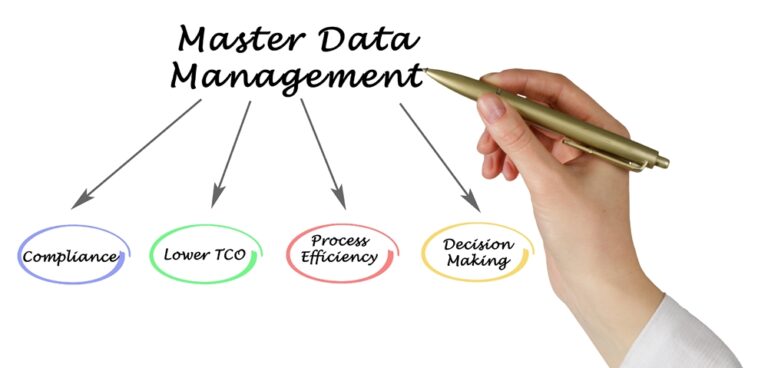
Hervé Chapron, SVP Global Sales, GM EMEA for Semarchy discusses how MDM is democratising business intelligence (BI) and driving data clarity, literacy, and utility across organisations.
When thinking about data quality and business intelligence (BI), imagine your business as an imposing, multidimensional house. High quality data, supported by Master Data Management (MDM) builds the foundation, ensuring the entire structure is reliable and future proof. Poor data, on the other hand, is like using subpar materials, leading to vulnerabilities and costly repairs.
The rooms in your data house represent different departments, interconnected yet serving specific purposes. BI tools act as utilities and appliances, turning raw information into usable assets. However, even the best BI tools cannot compensate for a weak foundation or poor data quality.
By investing in strong MDM and clean data, organisations can build a resilient “data house” to generate valuable business insights, make strategic decisions, and drive growth. Yet, according to Semarchy’s research, only 25% of data professionals believe their decision-making is truly data-driven, highlighting the critical role of MDM and data quality in overcoming this challenge.
MDM: the key to a reliable data foundation
MDM is a structured framework of processes, policies, and technologies to manage a company’s critical data assets, such as customer, product, supplier, and employee information. Known as master data, these assets are vital for day to day operations and strategic planning.
Without proper governance, this data often becomes fragmented, outdated, or siloed, which limits its reliability. MDM works to centralise and standardise master data, ensuring a consistent, high quality data foundation across systems and teams.
In the context of our data house analogy, managing this asset ensures that your data—your most valuable resource—remains high-quality and impactful for future decisions. Neglecting it would mean missing out on significant value.
Leveraging BI to gain a competitive edge
Incorporating BI into a business’s strategy transforms data into actionable, profitable insights. BI improves efficiency by automating tasks like report generation, freeing up valuable team time for higher value projects. It also uncovers critical customer behaviour patterns and shows where customer drop-offs occur, enabling better resource allocation for growth.
Rather than being a tool only for larger enterprises, BI platforms enable businesses to track emerging trends quickly, helping them maintain flexibility and agility. BI demonstrates to stakeholders and decision makers that your organisation is proactive and in tune with changing market conditions.
Driving better BI with proper data intelligence
MDM creates a foundation of trusted data for decision-making, but central to extracting business value is promoting data intelligence — treating data as a critical organisational asset. Without first achieving data intelligence, businesses risk generating flawed or incomplete insights, making BI less effective. Simply put, BI cannot succeed without a foundation of trusted, high quality data; poor data leads to poor decisions. To harness data intelligence effectively, organisations must ask pointed questions such as:
- “What specific outcomes do we want from our data?”
- Which data assets contribute directly to growing our business, and which may not be worth retaining?”
Addressing these questions boosts operational efficiency and supports essential applications such as data governance and self-service analytics.
The power of AI is equal to the quality of the data
Well-managed data unlocks a multitude of new opportunities for businesses, especially as artificial intelligence (AI) becomes increasingly prevalent across industries. The quality of your data is crucial; reliable, clean, and well-governed data forms the bedrock for trusted AI systems. Without it, AI models can produce flawed, biased results, eroding their reliability.
Moreover, AI must explain its reasoning and decision-making processes in critical sectors like healthcare, finance, and government. Transparent, explainable AI is essential to avoid becoming a “black box” with unjustified outcomes. Data intelligence drives this by providing structured, high-quality data for trustworthy, explainable AI applications.
For example, a small online retailer may be looking for new ways to grow their business. Data intelligence and AI can help them to analyse existing customer data and understand their spending habits, and then using AI to send targeted campaigns and capture more loyal customers, all while maintaining control and saving on costs.
MDM and BI working hand in hand
MDM establishes a reliable, consistent, and accurate data foundation across systems. BI and data intelligence tools then build on this foundation to generate actionable insights, enabling quick and informed decision-making.
Ultimately, the synergy between MDM and BI creates a powerful framework: one that supports better customer understanding, operational agility, and competitive success in an ever evolving landscape.



